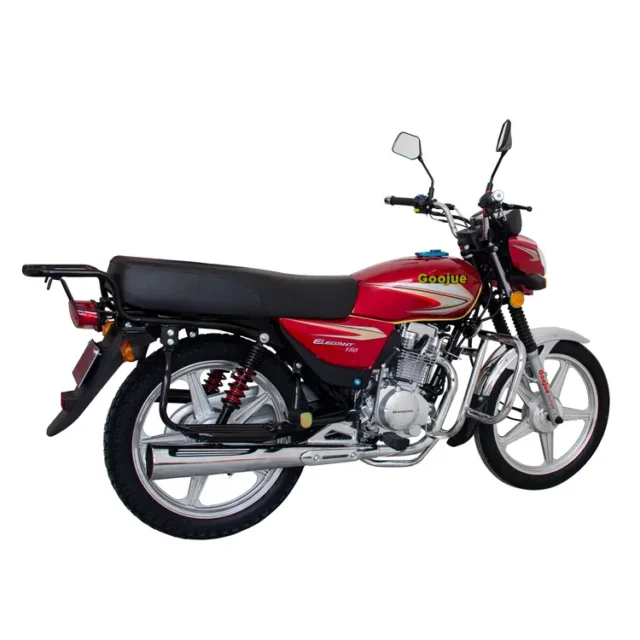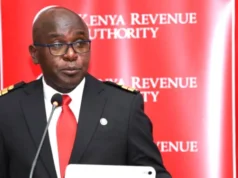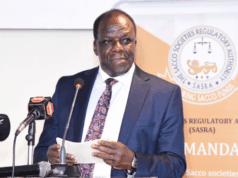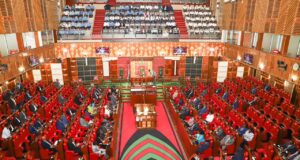Motorcycles have become an integral part of Kenya’s transport system. They are fast, accessible and affordable, providing a livelihood for thousands of young men and women across the country. From remote rural villages where public transport is scarce to busy urban centers where traffic jams choke the roads, the boda boda industry has stepped in to fill the gap. Yet with this rapid expansion has come chaos, lawlessness and grave danger. The time has come for Kenya to rethink how it regulates motorcycles and the people who ride them. One of the most urgent reforms is to outlaw the selling of a motorbike to an unlicensed individual. Likewise, it should be illegal to buy a motorbike without first presenting a valid riding license. Just as no one is allowed to buy a gun and without the legal documents that govern ownership, motorcycles too must be subjected to strict legal frameworks. Anything less is courting disaster.
The boda boda sector has become ungovernable by the day. With more than a million motorcycles crisscrossing our towns, highways and villages, the lack of order is now a national concern. Many accidents on Kenyan roads today involve motorcycles. Riders weave dangerously through traffic, ride on pavements, invade pedestrian walkways and ignore traffic rules. The result has been injuries, deaths and a strain on the health system. It is not just about accidents. The sector has also attracted criminal elements. Some motorcycles are used for quick getaways in robberies. Others are unregistered, making them difficult to trace. Lack of regulation has turned what should be a solution into a problem. The freedom to purchase and ride without a license has created a cycle of impunity.
The law is clear on driving motor vehicles, but motorcycles have been treated with leniency. Many young men buy bikes as soon as they can afford them, without ever stepping into a training school. The culture of jumping onto the road without knowledge of traffic rules is the beginning of many tragedies. The government must tighten the laws governing motorcycles. Outlawing the sale of motorcycles to individuals who do not have a valid riding license is a necessary starting point. Dealers and importers should be compelled to check and record license details before transferring ownership. This single step will ensure that only those who have undergone training and certification can own and ride motorcycles.
Equally, reckless behaviors must be criminalized. Riding against traffic flow, making irregular incursions into lanes, using pedestrian pathways and riding on pavements must attract heavy penalties. Riders must learn that roads are governed by rules, not by individual convenience. Personal safety must also be prioritized. Every rider and passenger should wear a helmet at all times, not as an option but as a rule enforced by police and county authorities. On highways, motorcycles should stick to the extreme left and never compete with heavy vehicles in the middle lanes. Discipline on the road must be restored if the sector is to survive.
Beyond safety, the boda boda sector must be drawn into the formal economy. Riders make money daily but most do not pay taxes. This is a loophole in revenue collection that must be closed. Just like matatus are regulated and taxed, motorcycles too should be brought into the fold. The answer lies in organization. Structured boda boda associations can operate like savings and credit cooperatives. They can receive credit from banks, extend loans to members and pool resources for investments. Such organization can transform riders from daily hustlers into shareholders of community enterprises. If properly regulated, this sector can become one of the largest contributors to Kenya’s economy.
The government should encourage riders to register into associations that meet standards of accountability. With good leadership, these associations can negotiate better terms with lenders, provide insurance covers for members and even invest in property, agriculture or transport fleets. The sector should no longer be viewed only as a survival mechanism for the jobless but as a legitimate part of the economy. Many riders on the road today have never seen the inside of a driving school.
Others went through training but have since picked up bad habits. For this reason, retraining should be mandatory. Every few years, riders should return to school for refresher courses, just as professionals in other fields do. This will help keep them updated on traffic laws, personal safety practices and the responsibility that comes with sharing the road with other users.
Riders must learn to see themselves not only as drivers of machines but as custodians of human life. A single mistake on a motorcycle can cost two lives in seconds. Furthermore, education can go beyond road safety. Riders can be trained in financial literacy, customer care and entrepreneurship.
A disciplined and knowledgeable rider is an asset to the economy and to the community. Kenya stands at a crossroads in the management of its motorcycle sector. If left unchecked, boda bodas will continue to be a source of chaos, insecurity and accidents.
But if regulated and reformed, they can be harnessed as powerful engines of economic growth and social mobility. Outlawing the sale of motorcycles to unlicensed riders and preventing unlicensed individuals from purchasing them is the first step toward order. Enforcing road discipline, introducing taxation, organizing riders into associations and retraining them regularly will complete the transformation.
The boda boda sector is not going away. It is deeply rooted in Kenyan society. What must change is how it is managed. With bold laws and determined enforcement, motorcycles can shift from being a national menace to becoming a national asset.















